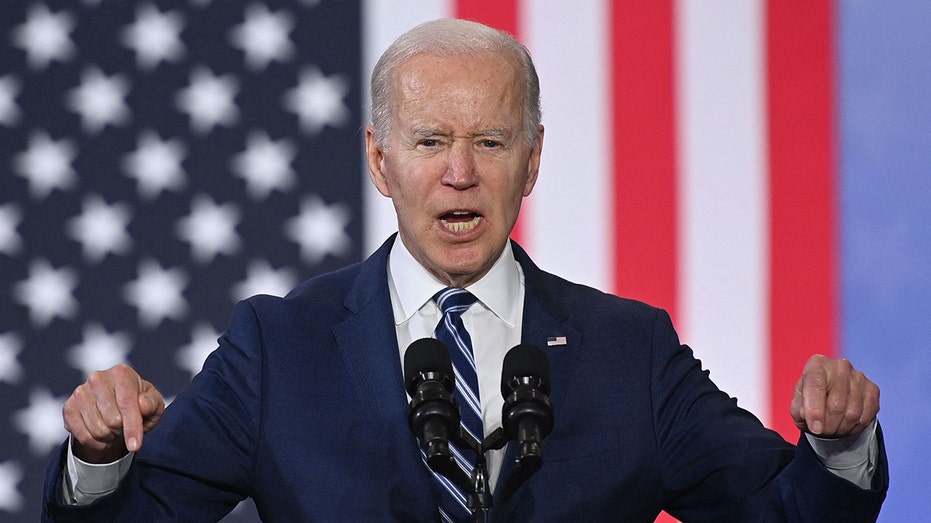Canceling student loan debt 'still on the table,' White House says: What to know
Biden pledged to erase $10,000 in student loan debt per borrower
Student loan borrowers react to Biden’s payment pause extension
FOX Business’ Lydia Hu speaks to student loan borrowers frustrated by Biden’s extension of the moratorium on federal student loan payments.
President Biden has so far canceled just a fraction of the student loan debt that he promised to erase on the campaign trail, but the White House said this week that a broader forgiveness plan is still a possibility.
White House press secretary Jen Psaki said during an interview on "Pod Save America" that Biden's use of executive authority to cancel billions of dollars in federal student loan debt is "still on the table" and that a "decision" could be made in the coming months.
US ECONOMY FACING 'MODEST' RECESSION NEXT YEAR: FANNIE MAE
"Nobody’s had to pay a dollar, a cent, anything in student loans since Joe Biden has been president," Psaki said. "And if that can help people ease the burden of costs in other parts of their lives, that’s an important thing to consider. That’s a big part of the consideration."

US President Joe Biden speaks at the Alumni-Foundation Event Center of North Carolina Agricultural and Technical State University in Greensboro, North Carolina on April 14, 2022. (MANDEL NGAN/AFP via Getty Images / Getty Images)
Biden has repeatedly extended a pause on student loan payments that began early in the pandemic under then-President Donald Trump, but the moratorium is poised to expire on Aug. 31, 2022. The Education Department has provided about $72 billion in relief on student loan interest alone.
Psaki said the Biden administration will make a decision on whether to further the payment freeze and possible loan forgiveness before the current student debt payment pause ends.
Progressives, including Senate Majority Leader Chuck Schumer, have urged Biden to cancel $50,000 in outstanding federal debt per borrower via executive order. The Democratic lawmakers have maintained that Biden could use existing executive authority under the Higher Education Act to order the Department of Education to "modify, compromise, waive or release" student loans.
Biden supported erasing $10,000 in student debt for most borrowers during his presidential campaign, but has raised questions about his legal authority to do so via executive order. Last year, the president requested a memo from the Education Department to determine whether he had the power to unilaterally cancel student loan debt.

Senate Majority Leader Chuck Schumer, D-N.Y., speaks to reporters after a Democratic policy meeting at the Capitol in Washington, Tuesday, Sept. 28, 2021, as work continues behind the scenes on President Joe Biden's domestic agenda and a bill to fund (AP Photo/J. Scott Applewhite / AP Newsroom)
Outstanding student loan debt has doubled over the past decade, nearing a staggering $1.7 trillion. About one in six American adults owes money on federal student loan debt, which is the largest amount of non-mortgage debt in the U.S. It has been cited as a major hindrance in people’s "economic life" by Federal Reserve Chairman Jerome Powell.
Such sweeping executive action would almost certainly face a legal challenge, and it's unclear whether it could survive. Critics have argued that using such power exceeds the president's authority granted by Congress. Canceling student loan debt would also add to the nation's already-ballooning national deficit, which totaled a near-record $2.8 trillion for the 2021 fiscal year.
GET FOX BUSINESS ON THE GO BY CLICKING HERE
The plan may also disproportionately benefit wealthy Americans, according to an analysis by the University of Chicago’s Becker Friedman Institute for Economics. The study showed that erasing all student loan debt would distribute $192 billion to the top 20% of earners in the U.S., but just $29 billion to the bottom 20% of U.S. households.
Under a universal loan forgiveness program, the average individual among the top-earning borrowers would receive $5,944 in forgiveness, while those with the lowest incomes would receive $1,070 in forgiveness, according to the study.





















